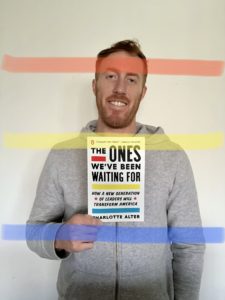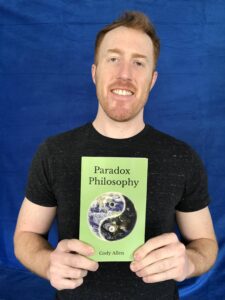 Political awareness is a strange occurrence in one’s life. When we’re young, we’re rightfully concerned with our immediate lives, things like school and friends and where we are right now and what we’re doing tomorrow. At a certain age, different for everybody, we come to realize that we exist within the network of the entire world, one citizen among billions, and we wonder how we fit in. “In the same way that the first few years of education determine the way children learn, the first few years of political awareness determine the way adults vote and lead.” This widening of the scope through which one views life is transformative.
Political awareness is a strange occurrence in one’s life. When we’re young, we’re rightfully concerned with our immediate lives, things like school and friends and where we are right now and what we’re doing tomorrow. At a certain age, different for everybody, we come to realize that we exist within the network of the entire world, one citizen among billions, and we wonder how we fit in. “In the same way that the first few years of education determine the way children learn, the first few years of political awareness determine the way adults vote and lead.” This widening of the scope through which one views life is transformative.
Every generation creates their own culture, and this book is about the contrasts between the Baby Boomers, born between 1946 and 1964, and the Millennials, born between 1980 and 1996. The political leanings of these generations of people are markedly different. To boomers, for example, capitalism connotes “hardworking entrepreneurs hiring new workers, and big money on Wall Street if you had the right pedigree.” To millennials, it means “oil executives cutting checks to politicians to stop environmental legislation.” These different conceptions of capitalism are the direct result of growing up at different times in history.
Millennials have a much different idea of environmental disasters than boomers. In 2005, Hurricane Katrina decimated New Orleans and the surrounding areas in the American southeast, causing over 1,800 deaths and around $125 billion in damages. It was called the storm of a generation. It wasn’t. Hurricane Ike followed three years later, in 2008, and wreaked havoc on Cuba and Texas. Hurricane Sandy arrived in 2012 and became the largest Atlantic hurricane ever measured by diameter, recording $70 billion in damages while it churned up every State on the east coast including Cuba and parts of Canada. It knocked out power for a majority of New York City for days, filling entire parts of the subway system with storm water. It was the kind of storm only seen once in a generation. But again, it wasn’t. 2017 brought Hurricane Harvey to Texas and Louisiana, doing another $125 billion in damages to the area and turning the city of Houston into an uninhabitable lake for weeks. If you factor in the increasingly large forrest fires in California, the melting ice caps, and the rising global average temperature, is it any wonder that millennials are concerned with climate change?
Let’s look at another key buzzword in today’s political lexicon: socialism. To boomers, socialism means “Russian gulags or Venezuelan famine,” while to millennials, it means “Nordic-style universal health coverage and subsidized day care.” After the Second World War, when American industries were growing, it made sense to attached health care to employment. Unions were strong and the middle class was expanding. In 2018, however, “more than 40 percent of eighteen- to thirty-four-year-olds worked as freelancers.” Freelance workers must find alternative means of health coverage, and their options are either expensive private insurance or nothing. President Obama’s Affordable Care Act of 2010 did a little to alleviate this problem, offering a public option to those who were uninsured. I myself work at the Cheesecake Factory and will be losing my health insurance due to not working enough hours. Because I only work part-time, and enjoy spending my other time writing and acting, I will not have health insurance for the rest of 2022. “For almost half the largest generation of workers, the traditional work structure that had defined twentieth-century professional life just wasn’t available anymore.” Myself included.
The biggest defining moment of Millennial’s lives is the terrorist attacks of September 11th, 2001, and the ensuing ‘forever wars’ in Iraq and Afghanistan. This was the first major shock to our system, the world letting us know that it didn’t like us Americans very much. And our military overreaction showed just how insecure we are. By the time we pulled all or our troops out of Afghanistan (2021), a majority of soldiers didn’t even remember 9/11. Some hadn’t even been born yet. A majority of Millennials (and those in the succeeding Generation Z) cannot articulate an answer to the question “why do we have a military presence in the Middle East?”
“For most parents in the 1980s and ‘90s, the single biggest goal of raising their children wasn’t to get them married or get them into the family business: it was to get them into college.” While education is undoubtedly important, all of these college-degree holders are saddled with a lifetime of student debt, myself included. I graduated in 2012 with about $37,000 in federal loans, and now, ten years later, I owe over $41,000. I have no realistic hope of ever paying it off, nor do most of my fellow millennials. Because of this financial ball and chain, in addition to mountains of medical and credit card debt, millennials are less likely to get married, have kids, or buy houses. We want to, but we cannot afford it. This is the biggest hurdle for my generation to jump: income inequality. The baby boomers have been in power for so long that they have created a system of governance that keeps the money and power in their hands. This was exposed to us via the Occupy Wall Street movement of 2011. “Occupy identified a central problem (income inequality), pointed at the culprits (big corporations), and described how those culprits had controlled the political system (with campaign donations legalized through Citizens United).”
What is interesting about the millennial generation of lawmakers coming up through the ranks is the blossoming similarities between Republicans and Democrats. Young conservatives don’t “see why the government should have a role in deciding who could get married or who could smoke weed.” They have a more libertarian streak, and are choosing to stand their ground on different issues (like abortion). Another similarity is the understanding and use of the internet and social media. It has become alarmingly true that members of Congress do not understand how Facebook works and that they are “too old to provide effective leadership in twenty-first century America.” Social media is directly responsible for the current state of politics in the United States. Alexandria Ocasio-Cortez and Dan Crenshaw, two of the most prominent millennial politicians, are experts at harnessing the power of social media. Even Donald Trump, despite his status as a boomer (he was born in 1946) excelled because of his use of platforms like Twitter and Facebook. Studies have found that “roughly three-quarters of Americans under twenty-five used the internet to participate in the 2008 campaign.” This makes sense, if you consider the fact that Facebook was launched in 2004, YouTube in 2005, Twitter in 2006, and the iPhone in 2007. “If Kennedy won the 1960 election because of television, Obama won in 2008 because of the internet.” The internet and social media have changed our cultural and political landscape forever.
Baby boomers only have a few more years with which they can cling to the echelons of power. Eventually, time will pass, and millennials will inevitably assume control. We will have to deal with income inequality, a changing climate, and other global powers who do not see America as a realistic threat. With social media as our weapon of choice, young people are poised to take over and lead, something they have always done and will always do. Thomas Jefferson, after all, wrote the Declaration of Independence at the age of thirty-three.


